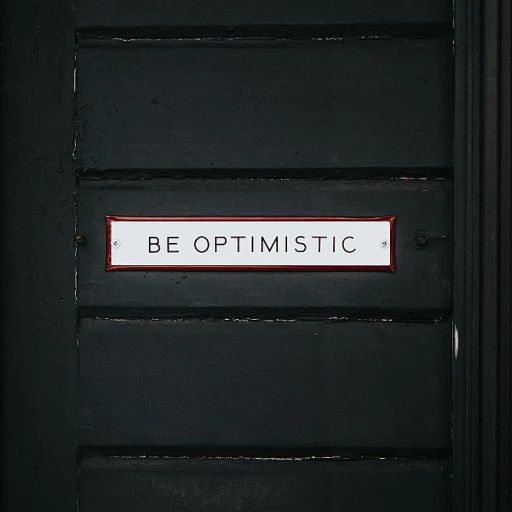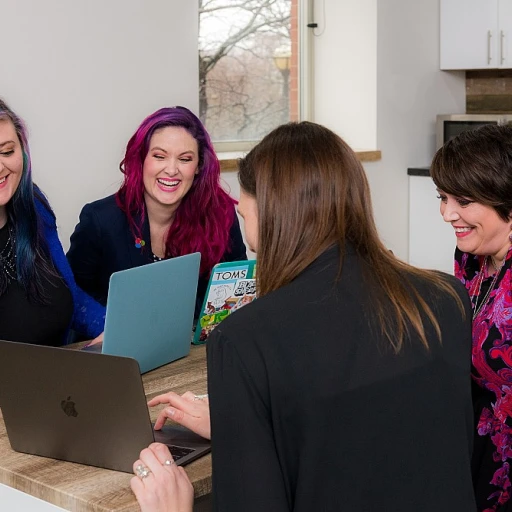Understanding Common Interview Questions
Grasping the Basics of Interview Queries
Navigating the landscape of HR job interviews can feel like stepping into uncharted waters, but with a grasp of common interview questions, you are setting yourself up for success. At the heart of these interviews lies the task of showcasing both your strengths and your weaknesses in a balanced manner. Let's dive into what to expect when sitting across from an HR professional.
When preparing for an HR interview, understanding the intent behind every question is key. Employers often pose queries that, on the surface, might seem simple or routine, but they dig deeper to assess your suitability for the role. Common inquiries such as "Tell me about yourself" or "What are your greatest strengths and weaknesses?" serve not only as conversation starters but also as opportunities for you to demonstrate your self-awareness and critical thinking.
In this particular context, addressing weaknesses is a ubiquitous topic. Many candidates see this as the most daunting part of an interview. Fear not, for with practice and reflection, you can turn it into a golden opportunity to showcase personal growth and adaptability. Understanding how to manage this aspect can greatly enhance your overall performance.
If you're looking to deepen your understanding and improve your approach, consider exploring resources that offer insights into mastering the art of HR interviews.
Click here for expert advice that can elevate your next interview performance.
Stay tuned as we move to identifying your weaknesses, which is crucial for honing your own personalized interview strategy.
Identifying Your Weaknesses
Evaluating Your Personal Development Areas
When embarking on a journey to identify your areas for improvement, it's essential to approach the process with honesty and introspection. This will help you present your authentic self in HR interviews. Here's how you can effectively identify your weaknesses:
- Self-Assessment: Take some time to reflect on your past experiences and projects. Consider feedback you've received, both positive and negative, and analyze situations where you felt challenged.
- Feedback from Colleagues: Reach out to trusted colleagues or mentors who can provide insights into your work performance. Ask them about areas where they believe you could grow or improve.
- Performance Reviews: Examine any formal performance reviews you've received. These can offer a structured perspective on your strengths and weaknesses.
- Skill Gap Analysis: Identify the skills required for your desired HR role and evaluate your proficiency in those areas. This can reveal any gaps that might exist.
Remember, identifying your weaknesses is the first step in demonstrating your commitment to professional growth. It's about understanding where you can improve and what you can do to enhance your skill set. Crafting effective answers, which we'll explore in another section, involves framing these weaknesses in a way that highlights your proactive approach to overcoming them.
Exploring these facets of personal development not only enables you to answer interview questions with confidence but also empowers you in your career journey. For more insights on navigating HR interview challenges, explore
mastering HR interviews to enhance your preparation.
Crafting Your Answers
Presenting Your Weaknesses Effectively
When it comes to addressing weaknesses in an HR interview, crafting your answers to the inevitable questions about your flaws is essential. While it's crucial to be honest, presenting your weaknesses in a constructive manner can leave a positive impression on your interviewer. Here's how you can do it effectively:
- Choose Genuine Weaknesses: Select areas for improvement that are authentic and relevant to your professional life. This doesn't mean you should reveal critical flaws, but rather focus on minor issues you are actively working on improving.
- Show Your Proactive Steps: Once you've identified your weakness, demonstrate how you are taking concrete steps to address it. This shows your commitment to personal growth and your ability to self-reflect. For example, if you struggle with public speaking, you might mention how you are attending workshops or practicing with a mentor.
- Relate to the Job Role: Ensure that the weakness you mention does not directly conflict with the primary skills needed for the role you are applying for. It's important that your weakness doesn’t raise red flags about your suitability for the position.
- Provide Evidence of Progress: Back up your claims with real-life examples or anecdotes that show progress. This could include situations where you've successfully mitigated the effects of your weakness in a professional setting.
- Practice Balanced Communication: Be clear and concise in your explanation, blending your narrative with both strengths and weaknesses. For a comprehensive understanding of improving communication skills, check out this preparation checklist.
Remember that the key to a successful HR interview is not only recognizing your limitations but showing a roadmap for improvement. An articulate and candid portrayal of your weaknesses, paired with a proactive approach to personal development, can showcase your resilience and dedication.
Balancing Strengths and Weaknesses
Showcasing Your Balanced Approach
When discussing your weaknesses during an HR interview, it is essential to show a balanced perspective. Highlighting both strengths and weaknesses allows employers to see a more rounded version of you. The aim here is to exhibit self-awareness and the ability to reflect and grow from past experiences.
- Emphasize Growth: Discuss weaknesses in the past tense and focus on the steps you've taken to improve. This not only demonstrates humility but also your commitment to professional development.
- Relate to Role: Ensure that your weakness does not directly impede the key responsibilities of the job you're applying for. Instead, it can be something that you're currently working on, showing your proactive approach to self-improvement.
- Highlight Overcoming Challenges: Use specific examples that showcase how you have successfully overcome challenges related to your weaknesses. This reassures employers of your problem-solving capabilities.
By crafting your responses this way, you effectively bridge the gap between acknowledging personal limitations and illustrating your ongoing journey towards self-improvement. This strategy not only reinforces your strengths but also paints a comprehensive picture of your work ethic and determination.
Sample Answers and Real-Life Examples
Examples of Answering Questions Related to Weaknesses
When you're preparing for HR interviews, having a few examples in your back pocket can be immensely helpful. These examples can guide you in answering questions about your weaknesses effectively. Remember, the key is to show growth and a proactive approach to overcoming these weaknesses.
- Addressing Time Management: "In the past, I've noticed that managing time effectively wasn't my strongest suit. However, I've taken steps to improve by using apps and creating detailed schedules. This has helped me prioritize tasks and meet deadlines consistently."
- Overcoming Public Speaking Anxiety: "Public speaking has been a challenge for me, but I've been working on it by joining a local speaking club and practicing regularly. This has increased my confidence, and I recently volunteered to lead a department presentation."
- Improving Technical Skills: "I struggled with some of the latest software in our industry. To tackle this, I took an online course and set aside time each week to practice. As a result, my proficiency in software applications has grown significantly."
Learning from Real-Life Examples
Hearing others’ experiences can also provide valuable insights into how to address your weaknesses. Consider discussing professional development stories with mentors or peers which can serve as inspiration in crafting your responses.
- Team Collaboration: A manager shared how transparency about a lack of experience in team settings allowed them to participate in workshops that enhanced their collaborative skills.
- Feedback Utilization: An employee mentioned their tendency to take feedback personally but learned to view criticism as opportunities by establishing a feedback processing routine.
As you gather this range of examples and experiences, you’ll find it easier to articulate your weaknesses in a way that illustrates your willingness to grow and adapt in your HR interview scenarios.
Tips for Improving Communication Skills
Enhancing Your Communication Skills for HR Interviews
Effectively addressing your weaknesses in an HR interview is not just about having well-crafted answers. It’s equally important to communicate these answers seamlessly. Here are some tips to improve your communication skills and make an impressive impact during your interview:
- Practice Active Listening: Communication is a two-way street. Pay attention to what the interviewer is asking, and respond appropriately. By practicing active listening, you can ensure that you’re answering the question directly and thoughtfully.
- Work on Body Language: Your non-verbal cues play a huge role in how your message is received. Exhibit a confident posture, make eye contact, and use hand gestures naturally to complement your verbal responses.
- Choose Your Words Wisely: How you articulate your thoughts can greatly affect the impression you make. Spend time honing your vocabulary and learn to express yourself clearly and concisely, especially when discussing your weaknesses.
- Rehearse Your Responses: Rehearsal can help you convey your points with more confidence. Consider role-playing with a friend or recording yourself to evaluate your tone, speed, and volume, ensuring your answers are compelling and effective.
- Reflect on Real-Life Examples: As highlighted in our article section on sample answers, using real-life examples can make your weaknesses relatable and understandable. Sharing stories reflects authenticity and helps establish a connection with the interviewer.
Improving these communication skills will empower you to share your crafted answers on weaknesses compellingly, complementing the way you highlight your strengths as discussed earlier in our article. Embrace these tips as you prepare for your next HR interview.








